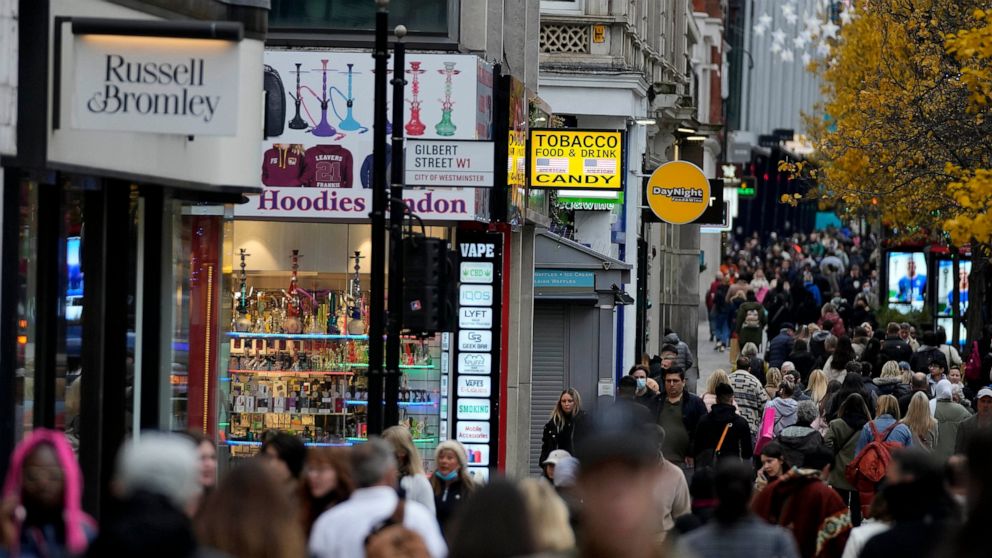Soaring food prices and the energy bill issue are pushing up prices at the quickest rate in over 30 years, putting a squeeze on living standards.
Inflation rose to 5.4 percent in the year to December, up from 5.1 percent the previous month, inflicting another blow on suffering people. Inflation was last higher in March 1992, when it reached 7.1 percent.
Analysts cautioned that with gas and electricity prices due to rise higher in the near future, it might reach that level again.
Households’ energy bills have been kept in control by the government’s price cap, which limits the amount suppliers may charge, but this is scheduled to change on April 1.
As a result, the energy industry has warned that gasoline prices might rise by another 50% in the coming months.
At the same time, there are indications that the high cost of food is becoming too expensive for many individuals.
Iceland’s CEO, Richard Walker, said he is seeing a “alarming” increase in the usage of food banks.
“Some individuals may have to choose between heating and eating. We’re losing consumers because they’re hungry “He stated. He went on to say that his businesses catered to some of the most disadvantaged neighborhoods in the United Kingdom. “Some of our customers only have £25 a week to spend on food, so they’re already struggling to make ends meet,” he explained.
“When you have real wages falling, Universal Credit top-up withdrawal, food inflation, tax rises, that obviously will hit hard.”
Chancellor Rishi Sunak said he recognized the challenges people were under, but the opposition Labour party warned that a “triple whammy” of financial hardships was on the way.
The latest results will put more pressure on the administration, which is already under criticism for tax increases slated to take effect in April. They will also feed calls for the Bank of England to boost interest rates in order to curb consumer spending and bring inflation closer to the Bank of England’s objective of 2%.
Separate government numbers released on Tuesday revealed that typical salary increases are falling short of keeping up with rising living costs. Regular salary, without bonuses and adjusted for inflation, declined 1% in November compared to the previous year’s same month.
According to Paul Johnson, head of the Institute for Fiscal Studies, persons on low incomes would be particularly severely impacted by the strain on living standards.
According to Capital Economics’ Paul Dales, inflation is now predicted to reach 7% by April. “That would be higher than the peak of 6 percent that the Bank of England was forecasting when it raised rates in December,” he noted.
“And although inflation will fall back thereafter, we think it will stay above 4 percent for all of this year and won’t drop to the 2 percent target until April 2023.”
As a result, he predicted that the Bank of England’s rate-setting Monetary Policy Committee will raise interest rates quicker than most people thought, with the next hike to 0.5 percent scheduled for February.
Meanwhile, the Retail Price Index, a gauge of inflation still commonly employed by the government and certain businesses, including pay negotiating, is already at 7.5 percent.
